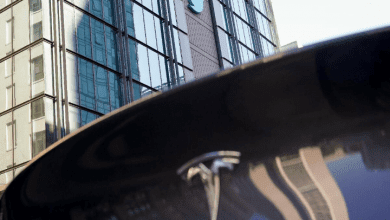
FG directs NNPC to lower the price of gasoline
According to Chief Timipre Sylva, the Minister of State for Petroleum Resources, the Nigerian National Petroleum Company Limited is selling Premium Motor Spirit, more commonly known as gasoline, at a loss because of its mandate from the Federal Government about PMS subsidies.
Sylva made her comments as oil marketers warned that supply disruptions in the downstream oil industry, which often cause fuel shortages, may last until June due to the government’s intention to discontinue gasoline subsidies in that month.
At the start of the President’s Major General Muhammadu Buhari’s scorecard series (2015–2023), the petroleum minister addressed in Abuja (retd.).
According to Zainab Ahmed, Minister of Finance, Budget, and National Planning, the Federal Government has allocated around N3.6 trillion for gasoline subsidies until June 2023.
In her speech on Monday in Abuja, Sylva maintained that subsidies had been a hardship, but she emphasized that the NNPC had been forced to continue selling PMS at a loss because of the mandate.
“This subsidy structure makes it difficult to control the supply situation,” he stated. We may all agree that a lot of money is wasted on fuel for our automobiles, but we still need to find a way to pay for the nation to stay moist.
“If you give it some serious thought, you could start to wonder what kind of magic we use to continually keep this land moist. Suppose you purchase something for, say, N10 and are required to sell it at a loss.
“And after that, you are supposed to return to the store, purchase the identical item, and then return to sell it at a loss. Because you are required to sell it at a loss, you are always seeking for more money to keep buying it.
“So if you’re a businessman, look at it from this viewpoint; you’re now in the business where you’re required to sell to the public at a loss,” Sylva said. I must admit that is not an easy task.
When asked how he would feel about purchasing gasoline for N300 per litre, Sylva said that he wouldn’t feel terrible about it.
“If you ask me how I would feel as a private individual purchasing gasoline at N300 per litre, I regretfully reply that I won’t feel horrible given the circumstances. And you will comprehend if you compare Nigeria to other nations,” he said.
The minister said, “You will understand when you translate the N300/litre that you are talking about to other currencies. How often do you visit the United Kingdom or the United States? How much gasoline do you purchase there? even in Arab oil-producing towns.”
Although he emphasized that the price of the good in Nigeria was not as high as that seen in other nations, he said that the subsidy on gasoline was no longer sustainable.
“Unfortunately, as all of us are aware, the system is still one of subsidies. I believe there is now a common understanding throughout the nation that subsidies are unsustainable, but with cooperation, we can overcome this, Sylva said.
Investors would continue to be wary of making investments in the downstream oil industry, according to him, until the price of petroleum products was determined by the market.
“Who is going to invest in a subsidised regime? How would your refinery earn money under a subsidised system if you construct one? However, if the scenario is driven by the market, many investors will show up.
And when we build additional refineries, this issue with access to petroleum products will no longer exist, Sylva said.
Dangote, FG
On Monday, the federal government said that it had bought shares in four refineries that are located throughout the nation.
It listed the refineries, which included the 2,500 barrels per day Duport Modular Refinery in Edo, the 5,000 barrels per day Waltersmith Modular Refinery in Imo, and the 650,000 barrels per day integrated Dangote Refinery in Lagos.
In addition, the government stressed that the facility had been finished and that the 60,000 bpd portion of the Port Harcourt Refining Company in Rivers State will start operating in the first quarter of this year.
This was revealed in Abuja during the ministerial scorecard series of the present government by the Minister of State for Petroleum Resources, Chief Timipre Sylva, and the Group Chief Executive Officer of the Nigerian National Petroleum Company Limited, Mele Kyari.
Sylva said that the Federal Government owned 20% of the stock in the Dangote Refinery and added that the Federal Government had also acquired stakes in three other refineries.
He said, “We have 20% stock in the Dangote Refinery and 20% equity in the Azikel Refinery. We invested 30% in Waltersmith, and we have a similar amount in Duport Refinery.
Duport Refinery has been completed. The building process is over. All that is left to do is get things going. I’m certain that Duport Refinery will begin operations in about a month.
The minister stated that certain modular refineries often obtained crude oil from assets closer to the plants, despite the fact that the Dangote Refinery already had a formal contract in place with NNPC for the delivery of crude oil.
So, he said, “private sector owners of these assets that are close to them have this contract (for the delivery of crude oil) with them (modular refineries).
Refinery PH
The target date for the start of operations at the Port Harcourt Refinery, according to the minister, has been moved to the first quarter of this year.
“I declared last year, and we have been saying the same thing from the beginning, we didn’t claim that we are going to finish the rehabilitation of the two refineries in Port Harcourt by May this year,” he stated.
We said that the Port Harcourt refinery’s 60,000 barrels per day refinery will be restored by the end of the fourth quarter of 2022.
Kyari was then asked to comment on the progress made by the NNPC in restoring the Port Harcourt refinery.
In response, Kyari said, “From the date of contract award, the refinery’s complete restoration would take 42 months. We carry out the restoration in stages, as is typical of any refinery.
The fuel plant, a 60,000 barrels per day component of this endeavor, was also promised to be operational by the fourth quarter of 2022, however this was not feasible. Nevertheless, we’ll begin it in the first quarter of 2023. Otherwise, all other processes are in motion.
Sylva responded to the NNPC chief’s comments by stating, “In other words, what he is saying is that the rehabilitation of the 60,000 barrels per day refinery has been finished and would be launched in the first quarter of 2023 as promised.”




3.6 trillion before June 2023
nice
Yes
Good
Pls FG release fuel
sup abeg realase fuel
And reduce the fuel price ,its too much for us
Better
Circulate the fuel to the public
That is nice
Good 👍
Thats very nice
Fantastic
Wow
Hmmm
Hmmm
Good
I pray our refinery’s start working
Nic one
Cool
Ok
Yeah
Great start. The PH refinery would serve as one of the major refineries in Nigeria of it is reconstructed.
Okay na.
Great
Thats it
Good 👍
Alright
That really good
Good
Good
Good
Good
Very good
Hmmm
Nice to hear
Thank God
Nice
It’s well
What about Petroleum, it shouldn’t be Gas only, but Petroleum and kerosine too.
Okay
Be
Very good
Good
Very nice one
Nice
They should try and do so oo
NNPC!
That is a very good development.
Nice
You are really trying
The hike is much
Everything is increasing but salary is decreasing
Goid
Ok
Ok
Hmmm
Ok
Good
Okay
Okay
hmmmmm
Nice
Sure?
Hope so